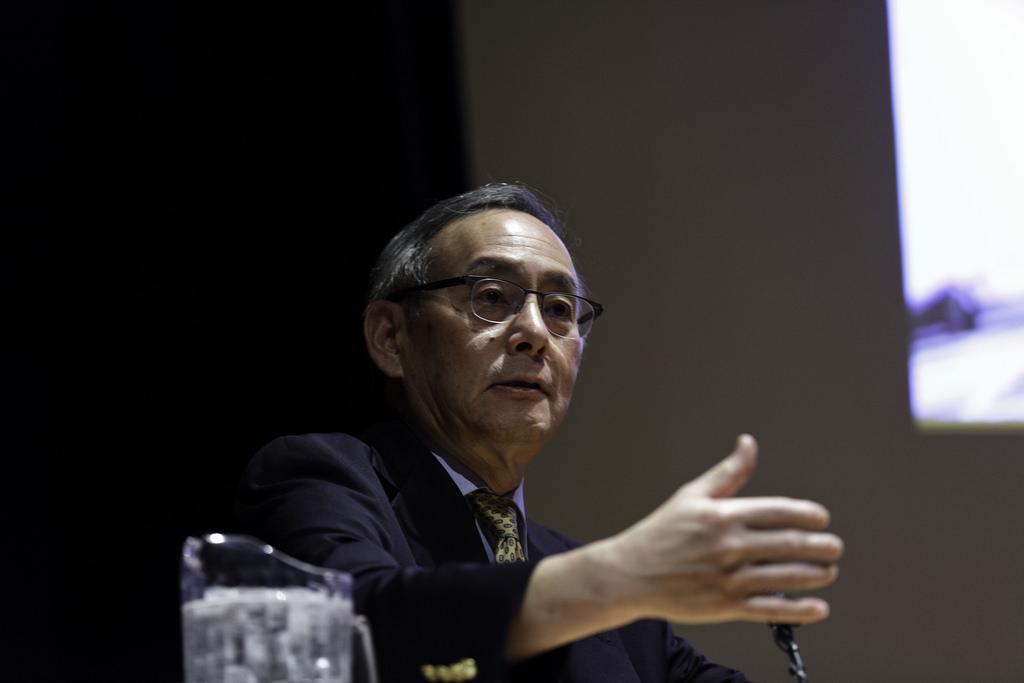
On 10 November 2014 Energy@Cambridge organised a lunch and round table meeting in honour of Professor Steve Chu, Professor of Physics and Molecular & Cellular Physiology, Stanford University, Nobel Laureate and Former US Secretary of Energy, which was hosted by Professor Lynn Gladden, Pro-Vice Chancellor for Research and Chair of the Energy@Cambridge Strategic Research Initiative.
The round table was attended by over 20 guests, including academics from the University of Cambridge, University of Berkeley, Research Councils, government departments and industry. The objectives of the meeting were to draw on the expertise and experience of Professor Chu and gain insights into how academic research could help make an impact in the energy arena.
Later in the day Professor Chu gave the S. T. Lee Public Policy lecture organised by the Cambridge Centre for Science and Policy, entitled ‘Energy, Climate Change and Sustainability: a necessity as the mother of many inventions’, in which he spoke about his experiences in the Obama administration, and challenges facing scientists and policy makers working to tackle global climate issues.
Professor Chu indicated that public funds were necessary to support research and development and that large long-term government subsidy for renewable technologies was not a good solution. He suggested that a clear carbon price would allow appropriate industry responses and a stable economic environment for renewable technologies to compete with fossil fuels on an equal basis.
During his time in the US government Professor Chu identified ‘white spaces’ which were areas of research which industry was not investing in, and focussed government research into these areas. This included low cost, high quality SiC for battery applications, resulting in the halving of the cost of batteries in 5 years, and advances in the affordability of solar panel technology.
Professor Chu highlighted that behavioural change to reduce CO2 was important, but took generations. However, school children were the most concerned about climate change and were also the leaders of the future.

